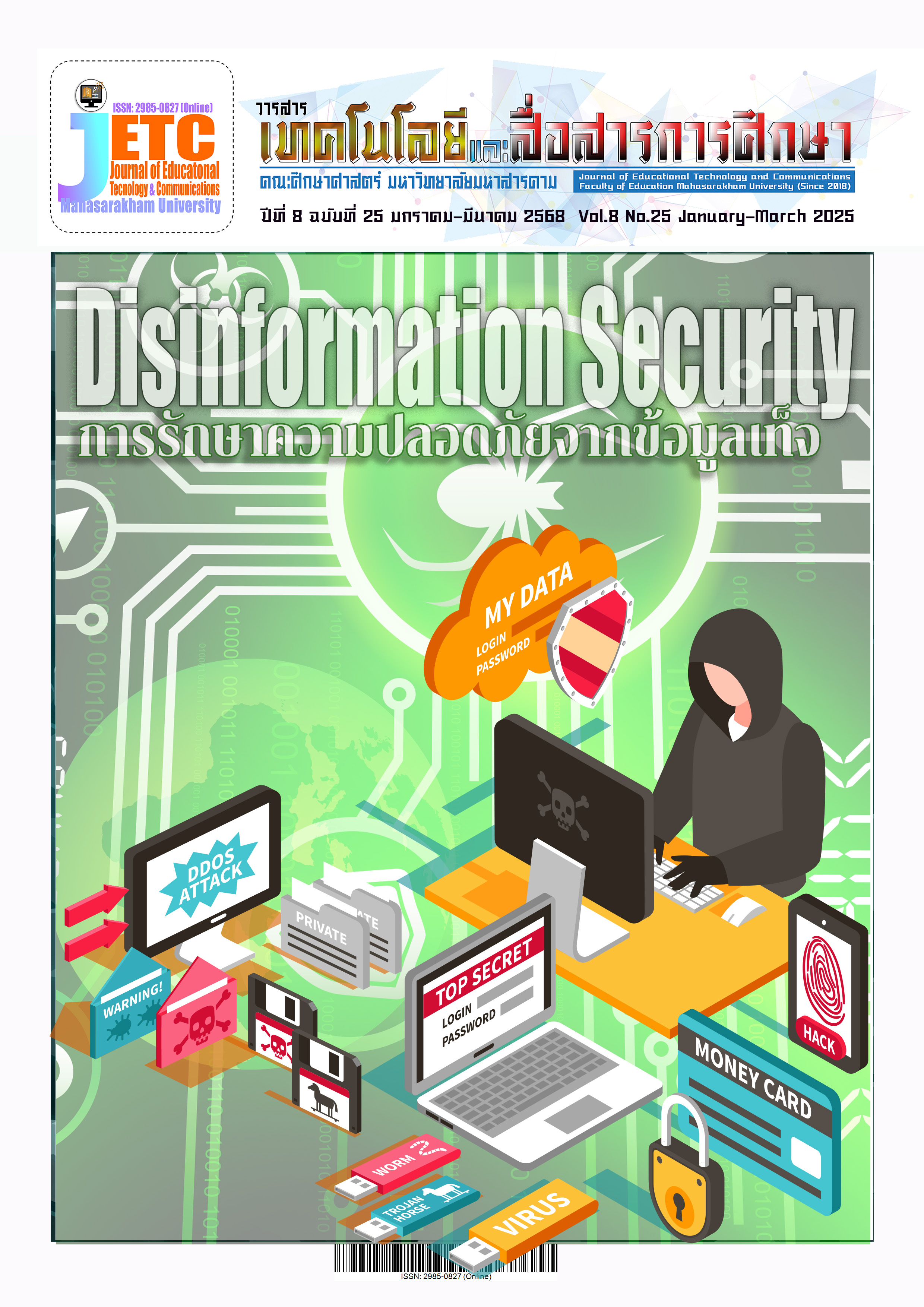The Tryout Results of Course to Enhance English Skills for Manpower in Thai Film Industry on Metaverse
Main Article Content
Abstract
The objectives of this paper are 1) to study the problems and needs of the Thai film industry, 2) to designing a course to enhance English skills on metaverse and, 3) to study the results of the use of the English Skills, and 4) to study the satisfaction a course, and 4) to study the satisfaction with the use of the research and development model. Using experimental research. Population in the study was (1) 270 students, (2) personnel working at the operational level in the film industry; 114 people The tools used in the research were1) requirement survey, 2) satisfaction assessments, and 3) vocabulary English proficiency assessments. The statistics used in the data analysis were percentage, mean, standard deviation.
The results showed that:
1. Students and personnel working at the operational level in the film industry found that they had problems with communication and listening skills and wanted to learn about specific vocabulary and develop speaking skills through modern technology.
2. The content design of the English Skills on metaverse consists of 10 lessons, including introduction to equipment related to films, roles and duties. Storyboard Casting Fitting Location Filmmaking process, check footage and sync audio The process of editing and adding visual effects.
3. The English proficiency learning results of 60% of students passed the criteria equal to 73.33 and (μ=47.78, σ=10.14) 26.67% of the unqualified sample and (μ=29.53, σ=3.79), while the overall group of personnel in the passing level was 70.18 and (μ=50.00, σ=6.15) the unqualified sample. 29.82% and (μ=26.15, σ=6.28)
4. Satisfaction with the Course is of very good quality (μ=4.73, σ=0.67)
Downloads
Article Details
References
ใจทิพย์ ณ สงขลา. (2565, 30 มีนาคม). Metaverse อนาคตการศึกษาข้ามพรมแดน การเรียนรู้จากโลกจริงสู่โลกเสมือน. https://www.chula.ac.th/highlight/64690/?fbclid=IwZXh0bgNhZW0CMTAAAR3JUCv9uUw5j_DTwT_WK7p_LHfAy0t3uzrfHgilxEPacidrZt_WkmXHC_s_aem_AU6c3D721KVS6pzsun4taw
ศิริรักษ์ ถิรบรรจงเจริญ. (2560). ความต้องการในการพัฒนาทักษะด้านการใช้ภาษาอังกฤษแก่บุคลากรระดับหัวหน้างานและผู้บริหารระดับต้นในบริษัทเอกชน เขตจังหวัดชลบุรี. (วิทยานิพนธ์ปริญญามหาบัณฑิต, มหาวิทยาลัยบูรพา). https://buuir.buu.ac.th/handle/1234567890/6411
เศรษฐา วีระธรรมานนท์ และอารีรัตน์ ใจประดับ. (2562). ศักยภาพของประเทศไทยด้านธุรกิจการถ่ายทำภาพยนตร์ต่างประเทศในประเทศไทย: การวิเคราะห์วิสาหกิจขนาดกลางและขนาดย่อม (SME) ที่เกื้อหนุนธุรกิจการถ่ายทำภาพยนตร์ต่างประเทศในประเทศไทย. วารสารนิเทศศาสตร์ธุรกิจบัณฑิตย์, 13(1), 12-42. https://so01.tci-thaijo.org/index.php/dpuca/article/view/244378
สถาบันขงจื่อ มหาวิทยาลัยเชียงใหม่. (2565, 30 มีนาคม). เปิดโลกเรียนรู้ภาษาจีนผ่าน Metaverse. https://www.tap-magazine.net/blog-th/metaverse
สำนักงานส่งเสริมเศรษฐกิจสร้างสรรค์ (องค์การมหาชน). (2564). รายงานการศึกษาการพัฒนาอุตสาหกรรมสร้างสรรค์สาขาภาพยนตร์และวีดิทัศน์ ปี 2564. ศูนย์บริการวิชาการแห่งจุฬาลงกรณ์มหาวิทยาลัย.
Green, C. and Ruhleder, K. (1995), “Globalization, borderless worlds, and the tower of babel: metaphors gone awry”, Journal of Organizational Change Management, 8(4), 55-68. https://doi.org/10.1108/09534819510090213
Hutchinson and Waters. (1987). English for specific purposes: A learning – centered approach. Cambridge University Press. https://assets.cambridge.org/97805213/18372/excerpt/9780521318372_excerpt.pdf
Rovinelli, R. J., & Hambleton, R. K. (1977). On the use of content specialists in the assessment of criterion-referenced test item validity. Tijschrit voor Onderwijsresearch, 2(2), 49-6.
Sarkis, R. (2012). Using cognitive strategies to improve english speaking skill and self confidence. American Journal of Education Sciences. 2(4), 19-23.


